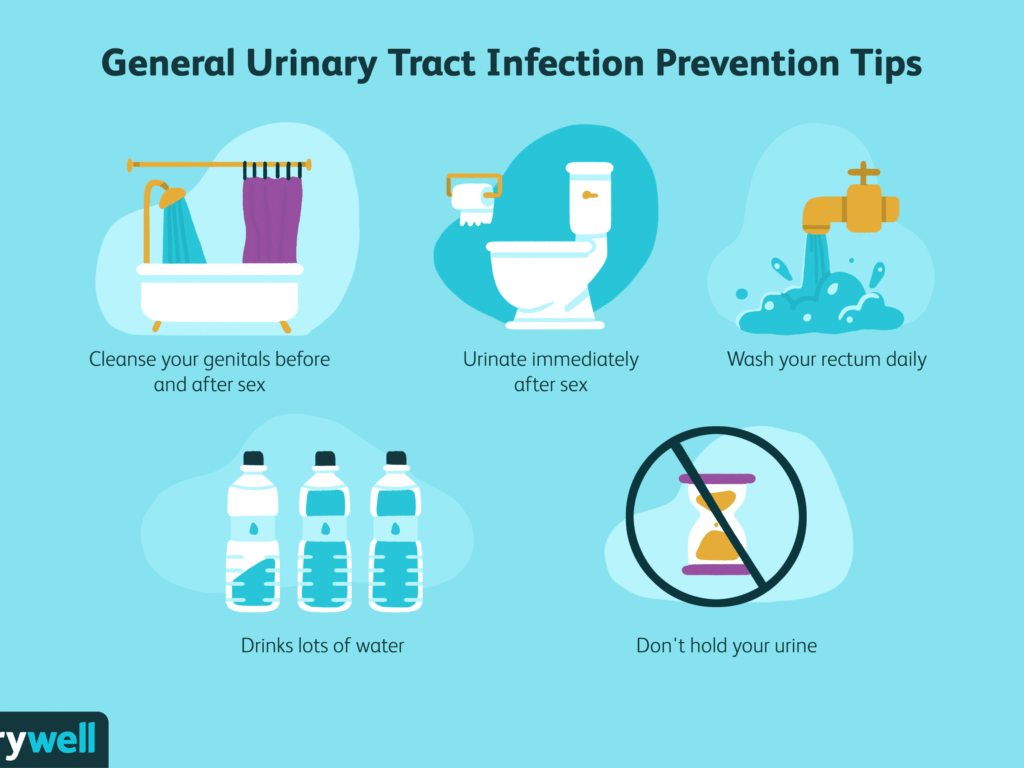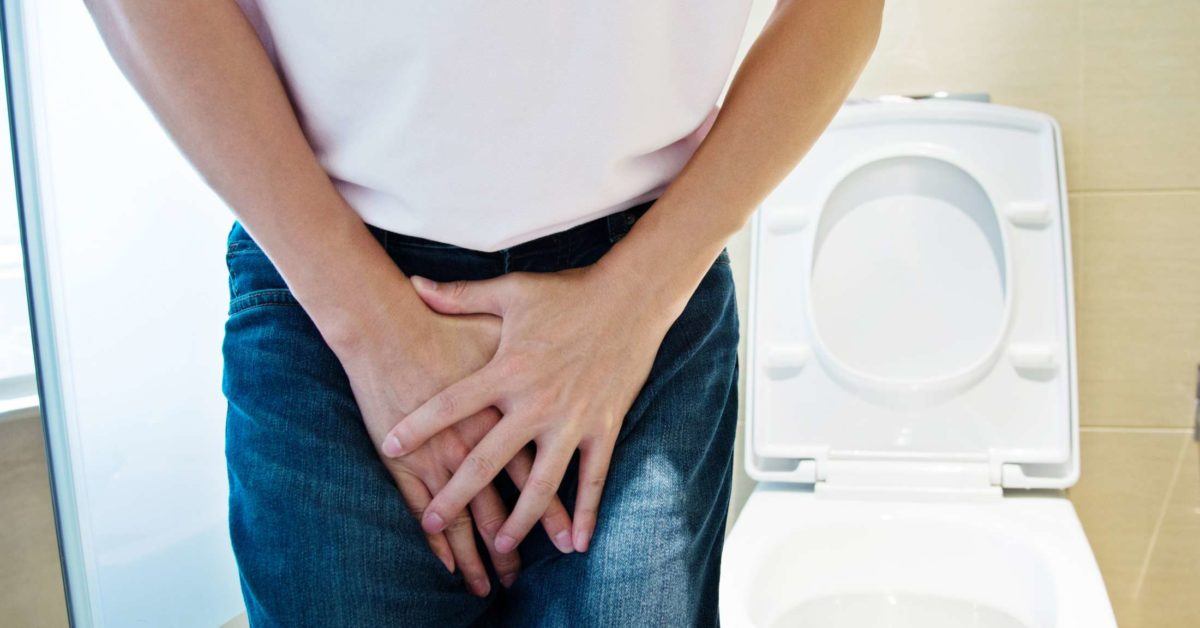One of the things that can cause us some inconvenience is bacteria. Bacteria are microscopic, single-cell organisms that can be found everywhere, but most are harmless to people. However, there are some that cause infections known as bacterial infections. When these bacteria enter the urinary tract of men, they can cause a urinary tract infection in men.
What is a Urinary Tract Infection
The urinary tract includes the body parts that produce urine and remove it from the body. For men, these parts include the kidneys and bladder and the ureters and urethra. Ureters are the twin tubes that carry urine from the kidneys to the bladder. The urethra is the conduit tube that transports urine from the bladder, which passes the prostate, continues through the penis, which leads it to exit the body.
Urinary tract infections (UTIs) are often classified into two (2) categories centered on their position in the urinary tract:
- Lower tract infections
include cystitis (bladder infection) and urethritis (infection of the urethra). Disorders of the lower urinary tract are commonly subsequent to intestinal bacteria that enter and contaminate the urinary tract below. This progression usually involves spreading from the skin to the urethra and subsequently the bladder. Urethritis can additionally be initiated by means of microorganisms transmitted through sexual contacts, such as gonorrhea and Chlamydia. An additional form of male urinary infection is prostatitis, a prostate inflammation. - Upper tract infections
involve the ureters and kidneys and consist of pyelonephritis (kidney infection). Upper tract infections frequently transpire because bacteria have traveled upward in the urinary tract from the bladder to the kidney or bacteria carried in the bloodstream was retained in the kidneys.
Should unhealthy bacteria increase in any urinary tract area; this can cause a urinary tract infection in men. Although urinary tract infections (UTIs) are, to a large extent, more common in women, men can become infected as well.
Urinary tract infections are projected to have an effect on approximately 3 % of men worldwide annually. This statistic means that most men will have never had a urinary tract infection, especially if they are young.
In men over 50, the prostate gland, located near the bottom of the bladder and close to the urethra, can expand, and impede urine flow from the bladder. This state is known as benign prostatic hyperplasia or BPH. This circumstance can hinder the bladder from completely emptying, increasing the probability of bacteria developing and producing an infection.
Cystitis (inflammation of the bladder lining) is more frequent in men who engage in anal intercourse and in those who are uncircumcised. Additional situations that enhance the risk of UFTs involve an obstruction, for example, that is subsequent to a partial blockage of the urethra known as a stricture, and medical procedures, such as rubber catheter tubes that may be inserted into the urethra to relieve a blockage.
However, when a urinary tract infection does develop in a man, it is severe and usually considered complicated. In addition, it is more probable to extend to the kidneys and upper urinary tract. Various cases may require surgery. This article addresses more about this condition, including its symptoms and treatment options.
Symptoms for Urinary Tract Infections in men
Men with urinary tract infections can have no signs or symptoms of the disease. However, when they do arise, they may include:
- a slow urine stream or urine leakage
- a sudden need to urinate
- blood in urine
- cloudy urine with a strong odor
- frequent urge to urinate
- inability to start urinating
- pain during urination
- pain in the central lower part of the abdomen
- the release of only small amounts of urine at a time
Men with difficult cases may additionally encounter one or more of the symptoms below:
- back pain
- chills
- fever
- nausea
- vomiting
These symptoms are indicative that the disease has moved to the kidneys or the upper urinary tract. An infection that has reached this area is a more severe quandary that necessitates prompt treatment.
Urinary Tract Infection Diagnosis

Initially, a physician will inquire about symptoms and any prior incidents of a urinary tract infection. To fully determine the risk factors, the doctor could ask about sexual history, including the history of the individual’s partner’s history of multiple partners, sexually transmitted diseases (STD’S), condom use, and anal intercourse.
Next, the doctor will make a diagnosis of a urinary tract infection based on symptoms and the outcome of a physical examination and urine tests. When examining the results of a usual urinary tract infection, the doctor will observe both white blood cells, which fight infection and bacteria. The laboratory will identify the specific type of bacteria and particular antibiotics that can eradicate the bacteria.
In the case of men, a rectal examination will permit the doctor to evaluate the size and shape of the prostate gland. Suppose a patient is a young man with no sign of an enlarged prostate. In that case, the doctor may order additional tests to search for a urinary tract abnormality that increases the likelihood of infection. This action is taken because urinary tract infections are relatively rare in young men with normal urinary tracts. Therefore, additional testing may be requested that would involve intravenous pyelography or a computed tomography (CT) scan. This test would display a contour of the urinary tract on X-rays, ultrasound, or cystoscopy. This examination permits the doctor to inspect the inside of the bladder using a thin, hollow tube-like instrument.
With prompt and proper treatment, most urinary tract infections that have not led to other complications begin to improve in 1-2 days.
Preventing Urinary Tract Infections
The majority of urinary tract infections in men cannot be prevented. Practicing safe sex by using condoms will assist with avoiding infections as well as diseases spread during sexual contact.

In men with benign prostatic hypertrophy (BPH), eliminating caffeine and alcohol or taking specific prescription medications can improve urine flow and prevent the buildup of urine in the bladder, which increases the likelihood of infection. A lot of men with urinary infections as a result of an enlarged prostate gland necessitate surgery to remove part of the gland. Since this surgical procedure can improve urine flow, it can also thwart infections.
The Treatment for Urinary Tract Infections
Urinary tract infections are treated with a variety of antibiotics. The laboratory tests on the urine can assist the doctor in selecting the best antibiotic for the infection. As a general rule, most uncomplicated lower tract infections will be entirely eliminated by five to seven days of treatment. Once the antibiotics are completed, the doctor might ask for another urine sample to ensure that the bacteria are gone. If either an upper tract infection or prostate infection is diagnosed, the doctor can prescribe antibiotics for three weeks or longer.
Men with acute upper tract infections can require hospital treatment and antibiotics administered through an intravenous catheter (through a vein). This action is especially apparent when nausea, vomiting, and fever further the risk of lack of fluids and prevent the use of oral antibiotics.
It is best to contact a doctor whenever a urinary tract infections symptom(s) is present.
Individuals age 50 or older should contact their physician if any of the following symptoms occur: difficulty in beginning urination, a decrease in the force of the urine stream, dribbling after urination, or a feeling that the bladder is not completely empty after urinating is finished. These may well be the symptoms of an enlarged prostate, a problem that can be treated successfully before it initiates a urinary tract infection.
Until more advancements in UTI treatment are available, antibiotics continue to be the most capable standard treatment. However, prescription medication does not have to be the only method for battle.
In conjunction with standard medical therapy, home remedies can be integrated to speed recovery and even help avoid any future infections.
Cranberries – Cranberries can contain a component that hinders bacteria from connecting to the urinary tract walls. It is then flushed out of the body.

Research is unsettled; therefore, more research is required. Some studies do indicate, however, that the risk of UTIs might be reduced with dried cranberries, unsweetened cranberry juice, or cranberry supplements which can be purchased online.
However, other studies indicate that using cranberries to prevent UTIs does not generate reliable results.
Consume ample amounts of water – Even though urinating can be painful with a UTI, consuming generous quantities of fluids is essential, mainly

water. Most adult individuals should make it a goal to consume between 6 and 8 8-ounce glasses of water daily.
The more water consumed, the more urination occurs. Urinating helps to flush dangerous bacteria from the urinary tract.
Do not hold urine – Holding urine for long periods can allow bacteria to multiply in the urinary tract. It is wise always to urinate when signaled.
It is also essential to ensure the bladder empties altogether when urinating and always urinate after sex.
Use probiotics – Probiotics promote healthy digestion and immunity. They may additionally be triumphant in remedying and preventing UTIs.
Although some research confirms probiotics to be efficient in UTI deterrence and cure, more research is required.
Intake ample vitamin C – Escalating the consumption of vitamin C can aid in the prevention of a UTI. Studies
show that vitamin C reinforces the immune system and may assist in acidifying the urine to prevent infection.
However, some research demonstrates inconsistent data regarding vitamin C’s efficiency in treating UTIs, indicating that insufficient studies have been conducted to support this treatment.
Wear properly fitting clothing – Wearing cotton-lined and loose-fitting clothing can assist in treating ongoing UTI infections by assisting in maintaining the area dry and clean.
Clothing that is tight-fitting and certain fabrics can trap moisture that will allow bacteria to grow in the genital area, leading to infection.
Conclusion
The majority of urinary tract infections can be treated effectively with antibiotics. In a male individual with a urinary tract irregularity or an enlarged prostate (BPH), repeated urinary tract infections can occur if the underlying problem interferes with the free flow of urine.
It is crucial to treat urinary tract infections. The sooner, the better. Urinary tract infections left untreated turn out to be more and more acute as they spread further.
A urinary tract infection is typically easiest to treat when in the lower urinary tract. A condition that travels to the upper urinary tract is a great deal more challenging to treat and is most likely to spread into the bloodstream, leading to sepsis. This condition is a life-threatening occurrence.
The bottom line is, if you have any of the symptoms listed above, see your doctor–pronto!
Would you please leave any questions, concerns, comments, or experiences with UTIs below?
Good Health!!

Well this sounds very serious. Thank goodness that I do not suffer from any urine problems. I actually have not come across anyone that has a problem with their reproductive system, girl or guy. I will be sure to bookmark this article just incase someone ever needs help. Thank you for this informative article
Yes, it can be very serious if not treated. But it mainly affects elderly gentlemen. So as you live, be on the lookout.
I do not have a urinary tract infection, but I am very interested in the urinary tract. I have suffered from lumbar nerve problems for a long time, and since I was young, I felt that the power of urine was weak. By the way, I found out that there are various routes of infection besides external factors for urinary tract infection seen in the body of this article today.
Among them, the habit of drinking a lot of water is important and impressive to me. Psychologically, I’ve always thought it would be good to drink a lot of water!
This is good health information!
I am glad the article was informative for you Minjun. Thanks for commenting.